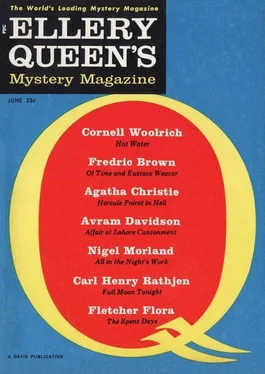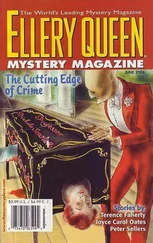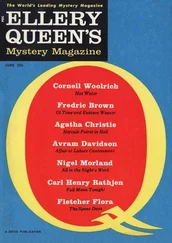“Not particularly.” Julia Morrow’s voice, under perfect control, was the vocal equivalent of her fastidious expression. “I find it boring, as well as absurd. However, allowing the motive, I should think it would have worked in reverse. The wrong person was killed.”
“It might seem so, superficially. However, you must admit that we are in the position of knowing who was killed and who was not.” Cora was silent for a few seconds, seeming to consider what she had said, and then she spoke again casually. “Tell me, Mrs. Morrow, why did you kill him? Was he going to divorce you? But of course he was. He was so vain, poor dear, that he could never have tolerated infidelity in his wife, even at the price of publicizing his own indequacy. Under the circumstances, it would have been a disaster, wouldn’t it? You would have received nothing, of course. As it is, you now have all that you need, haven’t you?”
“You twist my words against me.” Julia spoke and then was still. If she was shocked or greatly concerned, she didn’t show it. After a while she sighed. “What do you want, Cora Rogan? Surely you realize that it would be extremely difficult to establish anything against me after so long a time.”
“It’s hard to tell.” Cora reflected and shrugged. “Who knows what would happen if it were all to be revived? At the worst, ruin. At the best, a great deal of unpleasantness. Especially, it seems to me, for the charming little girl I met on my way to the house. Did I tell you that we played a game of jacks?”
Julia Morrow rose abruptly and moved a few steps away. She stood for a minute staring across the sunlit yard to a row of Russian olive trees at the rear, silvery-green in the light, and then she turned and came back to the table; but did not sit down again.
Cora smiled secretively.
“Why have you waited so long?” Julia Morrow said.
“I am not an avaricious person,” Cora said. “Until recently I lived well and had no need. Now I’m in need.”
“Tell me what you want.”
“What do I want?” Cora spoke dreamily, like a child with an impossible wish. “I think, more than anything else, I should like to return to Europe and live the rest of my life there. I know of a small villa in the south of France where I could live quite cheaply. For one who is clever in making the best of things, fifty thousand dollars should be quite sufficient for me — for a long, long time.”
“For the rest of one’s life, I should think.”
“Yes. For the rest of one’s life.”
Julia Morrow sat down. She closed her eyes, apparently tired, but her face was composed.
“Are you sure I can’t offer you some tea before you go?” she said.
“Quite sure.” It was Cora Rogan’s time to stand. “I’ve intruded long enough.”
“Are you staying nearby?”
“At the hotel in town.”
“How uncomfortable for you. The accommodations are deplorable, I understand, but of course there are very few guests in such a small place. You probably won’t want to stay long.”
“I hope to leave tomorrow afternoon. I’m expecting a small package before then.”
“I’m sure you won’t be disappointed.”
“You’re very kind and thank you again for seeing me.”
Cora left without looking back; but she did not go, as she had come, through the house. She walked around the outside along a walk bordering beds of bright flowers, and so past the fountain and around the concrete curve to the white birch and the little girl.
“Did you see Mother?”
“Yes. We had a nice talk.”
“Did she give you something for your charity?”
“She’s thinking about it. I’m sure she will.”
“I’m glad. Would you like to play another game of jacks?”
“No, thank you. I really must go”
“All right. I guess I had better go back to the house now, anyway. Goodbye.”
Cora watched her go up the walk alone. For a few yards she walked sedately, and then she broke suddenly into the gait that seems peculiar to small girls — something between a trot and a skip, or perhaps a little of both by turns.
Standing under the white birch and staring after her, Cora had suddenly so intense and terrible a sense of loss and loneliness that she cried softly aloud, unaware, in anguish. In that instant the small villa in the south of France was a far and empty place of exile, and she envied the vulnerable woman she had just left on the terrace — the woman who had saved something, as Cora had not, from the sterile years.
The girl had gone away and left her jacks in a little pile on the grass beside the walk. Bending down, Cora picked up the small metal pieces and dropped them into a pocket of her linen jacket.
She would keep them, she thought, as a memento of this day — and all the spent days before.
© 1935 by Popular Publications, Inc.
© 1947 by Agatha Christie; originally published in “This Week ” under title. “Meet Me In Hell.”












